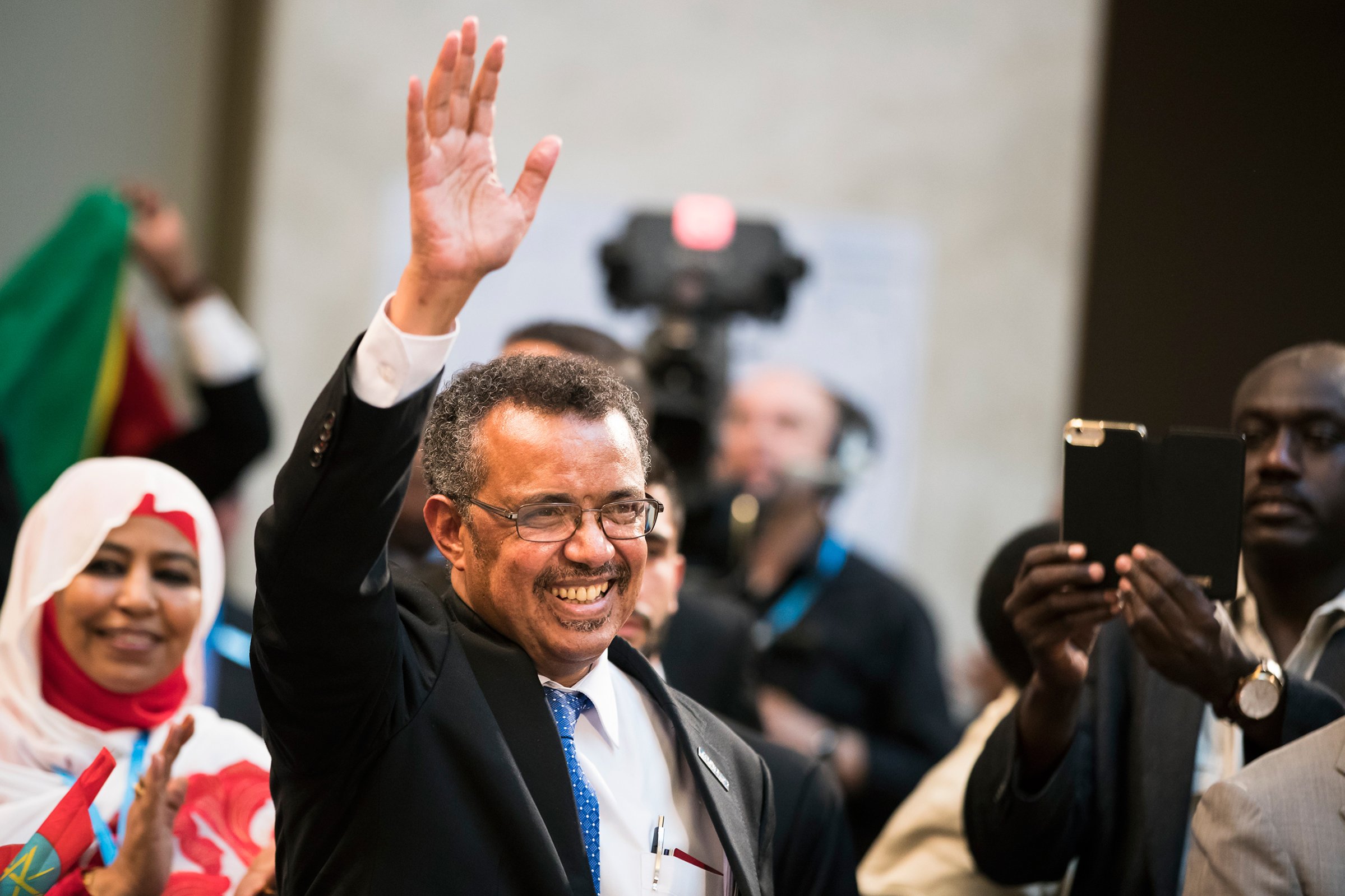
On May 23, Tedros Adhanom Ghebreyesus, a former Health and Foreign Affairs Minister in Ethiopia, was voted the new leader of the World Health Organization (WHO). His appointment comes at a tough time for the cash-strapped agency, which has received criticism for its slow response to the 2014 Ebola outbreak in West Africa. In his new role, Tedros must be ready to fight a range of public-health problems.
EPIDEMICS
The Ebola virus continues to surface in Central and West Africa, with a handful of deaths and suspected cases recently reported in the Democratic Republic of Congo. Health experts are also concerned about the H7N9 virus, a flu strain with pandemic potential.
SUPERBUGS
The WHO made a commitment in 2016 to tackle superbugs–bacterial infections that no longer respond to the antibiotics used to treat them. It’s estimated that the number of people who die from antibiotic-resistant infections could reach 10 million a year by 2050.
CHRONIC DISEASE
Rates of diseases like cancer, diabetes and heart disease are on the rise worldwide, and according to the WHO, chronic disease kills 40 million people each year–or about 70% of all deaths globally. The WHO is overseeing commitments from heads of state to reduce one-third of premature deaths from these diseases by 2030 through prevention and treatment.
More Must-Reads from TIME
- Your Vote Is Safe
- The Best Inventions of 2024
- How the Electoral College Actually Works
- Robert Zemeckis Just Wants to Move You
- Column: Fear and Hoping in Ohio
- How to Break 8 Toxic Communication Habits
- Why Vinegar Is So Good for You
- Meet TIME's Newest Class of Next Generation Leaders
Contact us at letters@time.com